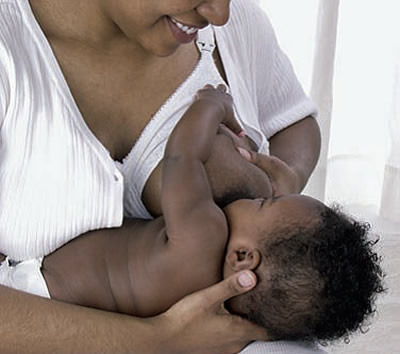A paediatrician at the General Hospital, Ikorodu, Lagos State, Dr. Ademolu Abiola, has warned against pressing breast milk into a baby’s eyes as a cure for jaundice.
Dr. Abiola, who gave the warning while speaking in an interview with PUNCH HealthWise, also warned against using pawpaw water and ampiclox for babies with the condition.
Jaundice is a yellow colouration of the skin and mucous tissues due to an increased level of bilirubin in the blood.
According to the World Health Organisation, jaundice is one of the most common physical signs observed during the neonatal period.
Abiola said the majority of neonatal jaundice cases are physiological, warning that it is crucial to monitor each case to prevent complications.
“We are aware, as doctors, of a lot of practices that happen outside, especially in terms of newborn care.
“We know, as paediatricians, that babies sometimes have mild problems when they are born; but it’s not about babies having problems when they’re born but the management of some of those cases that matter to us.
“There are some home principles that are harmful to babies, such as when babies are being given ampiclox as a cure for jaundice.
“In some situations, some women put breast milk inside the eyes of babies.
“Of course, knowing the pathogenesis of jaundice, it will eventually be cleared from the body system. It has nothing to do with putting breast milk in the baby’s eyes or the use of ampiclox,” she said.
Abiola said jaundice can be physiological (harmless) or pathological (harmful).
“Most babies have physiological jaundice, but the layman wouldn’t know the difference and that’s the more reason that when you notice the yellowness of the eyes of the baby, the baby should be taken to a good health centre for a paediatrician to evaluate the baby.
“So, using breast milk or ampiclox for the baby does not cure jaundice.
“Physiological jaundice will run its course. This means that whether you do something or not, it will fade away.
“However, you should not take chances because you don’t know if it is the physiological one or the pathological one, especially as a layman,” she said.
She added that one can suspect pathological jaundice in the first 24 hours after birth.
“A baby born today can have jaundice and when you notice jaundice on the first day of life, it’s called pathological and normally, a baby should not even have jaundice within 24 hours, so when you notice jaundice within 24 hours, itis pathological.
The PUNCH


